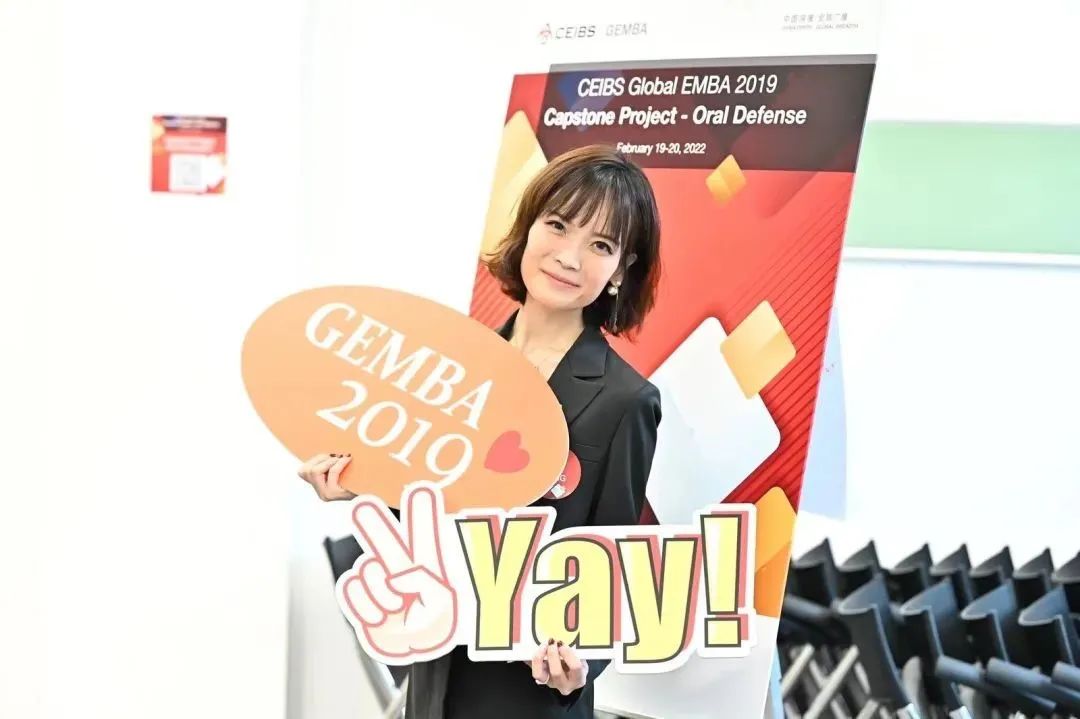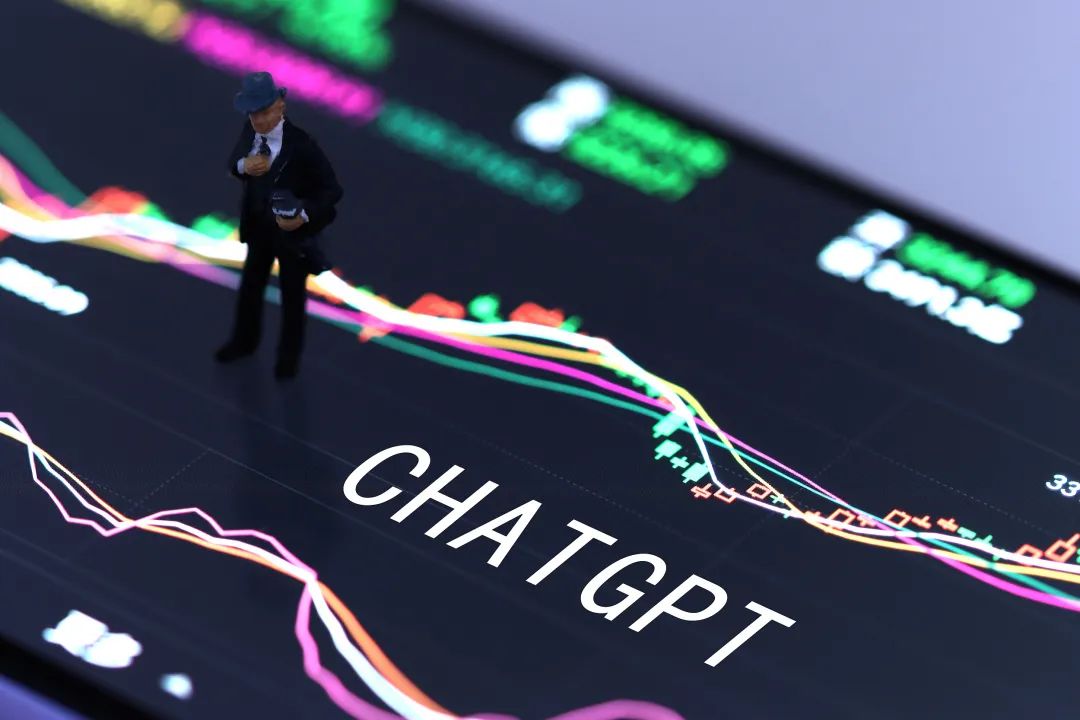ChatGPT is the new face of AI development

Since its debut, millions of users around the world have experimented enthusiastically with ChatGPT – the most advanced chatbot ever created. To their delight, they have discovered that this conversational artificial intelligence (AI) can successfully handle almost anything you throw at it. It can tell jokes, write you a ‘polite but firm’ email, help you get a date, and even explain Bitcoin in the style of Donald Trump.
As impressive, amusing and downright surprising as this all is, it begs the question, what is the greater significance of ChatGPT’s meteoric rise in the global public conscious? In a few short months, OpenAI’s creation has singlehandedly elevated the debate on the opportunities and pitfalls of AI. To better understand the implications of this milestone, we asked two CEIBS Global EMBA students who are at the forefront of the AI industry in🔸快乐10分玩法说明.

Yan Wang
CEIBS Global EMBA 2019
Yan Wang is a Senior AI Transformation Partner at 4paradigm, a Chinese AI company founded in 2014. With extensive experience as an industry consultant, Yan assists B2B clients in exploring new business models enabled by AI-driven decision-making. She helps clients determine optimal ways to integrate AI into their future business models by pinpointing how, when, and where AI can be most effective.

Richard Jin
CEIBS Global EMBA 2020
Richard Jin is the Head of Data and Outcomes for the Unilever UNITE team at Mindshare🔸快乐10分玩法说明, a global media agency spanning 86 countries and nearly 10,000 employees. Richard and his team are deeply involved in frontline data platform building and data applications, while constantly looking at the latest AI technologies emerging onto the market. From AR/VR products to the metaverse to ChatGPT, Richard needs to be keep up to date with the latest developments in public-facing AI.
Getting technical – What is so special about ChatGPT anyway?
We’re all used to hearing how AI will transform individual sectors, whole industries and then wider society itself. This is the battle cry of technology enthusiasts who believe that the fusion of human and machine intelligence is the best possible route for solving our biggest collective problems, ranging from crime to climate change.
However, for years, the reach of AI developers has exceeded their grasp as they have remained limited by several key technical constraints and their attached costs. As Richard explains, ChatGPT is the result of a ‘tipping point’ where processing power has finally caught up with the ambitions of AI innovators.
Richard: The changing state of AI is always connected to the development of a range of associated technology branches. Natural Language Processing, image recognition, machine learning – these have all previously been limited by processing power. However, Moore’s Law is still holding true, with the capacity of components doubling every two years or so, which means that our computational power keeps expanding while costs are falling. The emergence of ChatGPT is accumulation of years, and even decades of experimentation and development of key technologies coming together, with computational power rising to unlock that potential.
Richard goes on to explain that what makes ChatGPT special is that it is one of the first public-facing AI platforms that successfully showcases the potential of combining several key technologies in the right way. It is a generative system that uses its vast databanks to predict the ‘best outcomes’ for over 10 million queries its users generate every day, with a mixed approach of prediction modelling (a core system used in weather forecasting, autonomous driving, etc.) and the rules-based functionality of an expertise system (one that uses set rules to define the best, most efficient strategy and response).
By bringing together and combining these varying technologies and approaches successfully, ChatGPT is now one of the most advanced AI systems in the world. Its capabilities are already impressive and are growing all the time, due to the endless queries being fed into its deep learning algorithms. Beyond answering direct questions, it can simulate human-like responses in conversation and interviews, translate with high accuracy, and generate original stories, poems and scripts. It can even code for you!
With such capabilities available within a single platform, ChatGPT was always destined to make headlines and break records. As the initial public response shows, its instantaneous fame is also destined to grow, even though the coverage is certainly not all positive.

Sparks fly – How ChatGPT captured the public’s imagination
Yan: I’m really not surprised at the response to ChatGPT. It reminds me of the moment when the iPhone was born. It’s even more significant than that. The concept has always been solid, but AI companies have constantly struggled with viable business models and profitability. The birth of ChatGPT is exactly what was needed to give investors confidence and the general public a better idea of what AI can do and how it will fit into their lives. It represents a new pattern for big internet companies to adopt, allowing them to bring more adaptive, versatile applications to market more quickly.
Richard: It’s a fascinating tool, one that anybody can use and see within five minutes the possibilities it offers. It went viral on Twitter and Reddit because it captured public imagination by passing the Turing Test (when a machine can exhibit behaviour equivalent to a human) and began answering questions on a very ‘human’ level. There is a clear personality behind the chatbot, as it can understand context and respond accordingly. It’s a turning point in AI history and I think people can feel that when they use it.
In just a few months, ChatGPT has accumulated over 100 million daily users and a rough market valuation of $29 billion USD. It has delighted and infuriated interviewers in equal measure. It has been praised and criticised for being not political enough, being too political, and either being too left or right-leaning, depending on whose opinion you are getting. It has even prompted religious leaders of all major faiths to come together and discuss the moral conundrums posed by AI.
Gathering critics and champions with remarkable speed, ChatGPT has galvanised the wider debate on the future direction of AI development, and specifically how it will fit into human society. In the workplace, in our homes, in social media discourse and everywhere else we interact, AI is poised to have a presence. If the initial response to ChatGPT is an indication of things to come, then it seems that the public is ready for more AI interactions in their daily lives, even if there are some big ethical questions that loom large over its ongoing development.
Beyond Netflix – ChatGPT points the way towards the next generation of on-demand content
While Yan and Richard are both very excited about the general possibilities presented by ChatGPT, there’s a specific capability that has them tingling in anticipation – on-demand content creation.
Picture the scene: It’s a quiet evening and you want to watch a movie. You log in to your on-demand TV/film subscription service, but instead of quickly finding a film to suit your mood, you spend forever scrolling endlessly across the screen, discounting recommendations left, right and centre. We’ve all been there.
But what if instead of leaving your evening’s entertainment to Amazon, Netflix or Hulu, you could dictate the movie itself? From the comfort of your couch, you could make a few quick decisions about the setting, casting and major themes, and then sit back and enjoy an AI-generated film set to those parameters. For those of us who are bored of the usual Hollywood fare, it’s a tantalising prospect.
Richard: On-demand content generation is going to shake up content-based industries, and it’s not far off. Top players like Netflix, Amazon, and Disney invest hundreds of millions of dollars into producing new films and TV shows, but that’s getting harder to sustain, as artificial intelligence-generated content (AIGC) will remove the competitive barrier they have been relying on from their scale in content creation. Retaining top human talent will still be essential for the purposes of editing, but this approach lets the AI handle 90-95% of the workload. Imagine what that would do to the production costs? Social media platforms will also be similarly impacted, where historically big TikTok and YouTube channels that rely on professionally or semi-professionally-generated content will have to compete against mass AI-generated content. Content will quickly become a whole new ball game, where humans will have a completely new type of competition.
Yan: AI tools will be able to develop characters, settings, plots, animations, all of it based on simple commands, eliminating vast swathes of sunk costs at a stroke. It’s a great example of how the wider AI industry will come up with completely new methods of creating what we want, while hopefully doing so in a more inclusive and sustainable manner. As always, it’s a case of combining human and machine intelligence effectively to create better ways of doing things.
Are you looking forward to watching an AI-driven movie? Well, you may not have long to wait.

Help or hindrance? Assessing the dangers of ‘too smart’ AI
With more meaningful AI tools emerging onto the scene, it is only reasonable that people will start to think more seriously about the potential drawbacks as well as the benefits. In the case of ChatGPT, the main concerns from the public seem to revolve around two things: disinformation and displacement of jobs.
In the first case, it is easy to see where the fault lines are. Any communication tool can be used to spread disinformation or heavily distort events – a daily reality played out on social media and mainstream TV networks and in print media. With such vast datasets at its disposal, ChatGPT could be a viral-grade misinformation machine in the wrong hands. Since its release, users have managed to get around ChatGPT’s guardrails fairly easily, creating queries that ‘trick’ the system into giving answers that feature political rhetoric, hate speech, and all manner of dangerous, disturbing or unseemly content. This is perhaps not that surprising; the ‘data mirror’ of the internet’s aggregated content was always going to have a fairly dark reflection when viewed from certain angles.
Richard: Safeguarding such complex AI is always going to be imperfect, but it’s essential to keep revisiting and improving it. As soon as the technology diverges beyond the control of a few major stakeholders, the risks of malpractice increase exponentially. So, big tech is going to have to set their standards high and work with regulators to address these issues, otherwise they simply won’t retain their users’ trust.
Yan: Safeguards will always be difficult when you have an endlessly inventive audience who want to push the boundaries of what the technology can do. It’s essential to keep improving the NLP, machine learning algorithms, manual moderation, and user reporting tools in order to limit access for bad actors. One way to minimise the risk in this area is to develop transparency and accountability at every turn. Proper regulation will be vital, because AI must be seen as a force for good, not just profit.
Robots are coming for your jobs! Or are they?
The second concern – that of being replaced by an AI – is a fear that had its roots set millennia ago. Every new technological advance represents a potential threat to established professions. From the mechanisation of agriculture to the advent of ridesharing apps, tech-based disruptions always cause job creation and job losses, but rarely in equal measure.
ChatGPT, with its ability to create original content rather than simply regurgitating what already exists, now has creative-role professionals worriedly looking over their shoulder. Writers, musicians, artists and educators may rightly ask if they’re in danger of having their profession farmed out to an AI system in the coming years.
Yan: ChatGPT is a huge achievement in creating convincing ‘human-like’ text. But it’s still very unlikely it will outperform humans in creative roles. Human beings’ capacity for empathy, intuition, leaps of logic, unconventional thinking, these are vastly complex mental frameworks for an AI to imitate. Despite the rapid speed of machine learning we’re seeing, I don’t think AI will manage to match us in this regard, certainly not any time soon.
Richard: As we’ve seen already, ChatGPT can create the ‘bare bones’ or starting point for all manner of content, but this is not ‘true creativity’ in the same way that humans can manage. The system is putting together knowledge from databanks in different ways to best answer the queries. Again, ChatGPT and similar AI systems will be most useful as a means of getting us to think differently about such tasks. Hopefully, it will inspire people to elevate their craft more than it demotivates them.

Get ready for the revolution – How can you prepare for AI integration?
ChatGPT’s grand entrance has decisively demonstrated AI’s potential to change our world for the better and, possibly, without careful management and good faith from key stakeholders, for the worse as well. For Yan and Richard, individuals should view this as an opportunity as much as a challenge.
Richard: Fear of the unknown is always the biggest fear when it comes to tech adoption. The more people understand AI’s capabilities and limitations, the more this will alleviate those fears. My advice is to learn the fundamentals of AI to get comfortable using it. ChatGPT is a great place to start. If you’re in a content creation-based role, take advantage now – either harness the technology or shift your business model entirely, because content will be disrupted by AI within a matter of years.
Yan: Governments and schools will need to start to prepare the next generation for an AI world. They must educate them on AI usage, the risks involved, and how it affects their rights to privacy. I think people should be an active part of the solution; they need to develop a better understanding of AI, how it works and how it can improve their lives. It’s beyond exciting to think how AI will eliminate drudge work, so we humans can invest our energies into soft skills, creative skills, things that a machine simply cannot do. Hopefully, this will lead to a world where working is much more enjoyable and meaningful. So have a growth mindset, and be open to new ways of working with AI.















